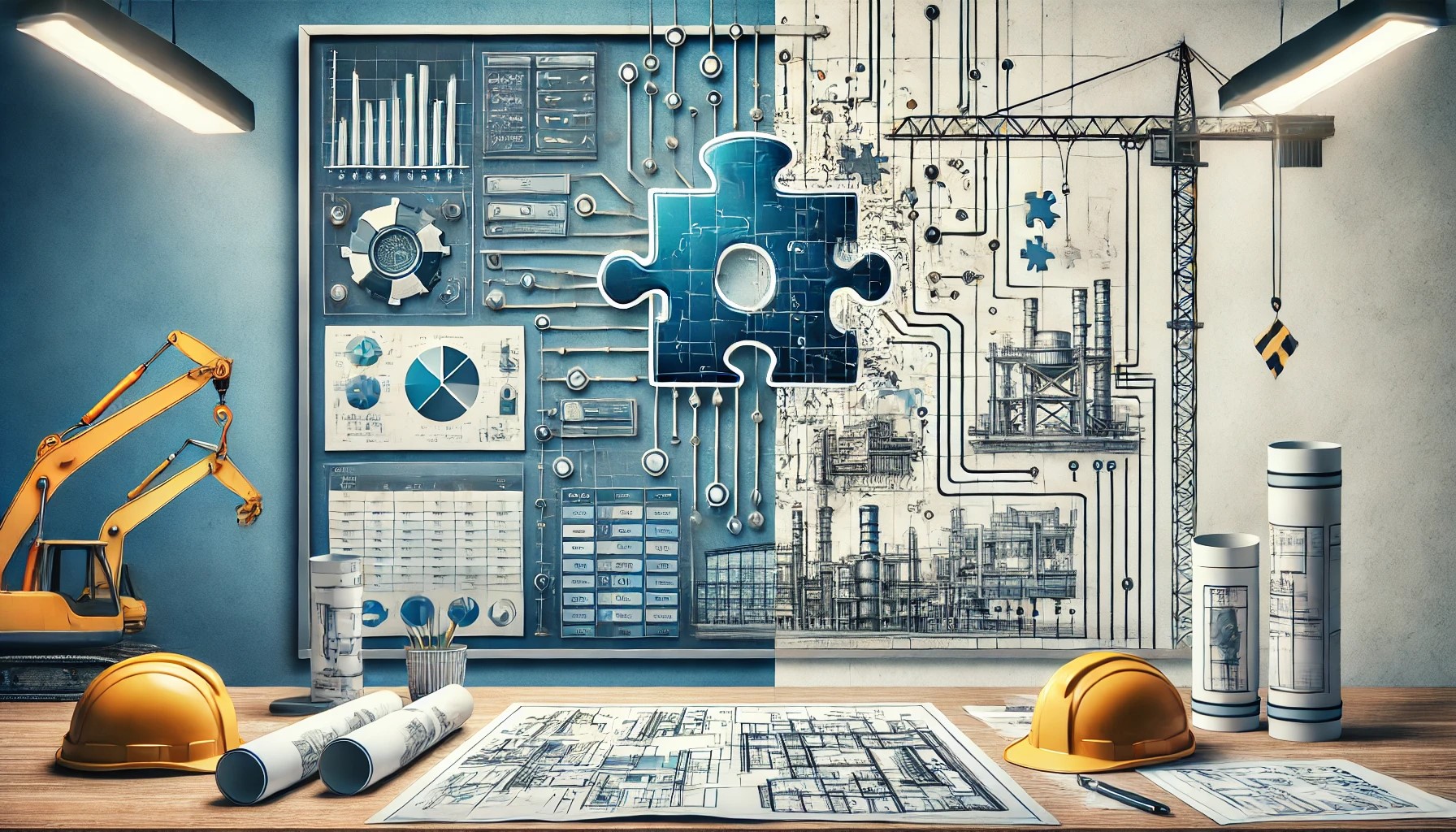Why Generic ERP Does Not Fit the Construction Industry

The Problem with One-Size-Fits-All ERP Systems
Enterprise Resource Planning (ERP) software is designed to streamline business operations, but not all ERPs are built the same. Many industries benefit from generic ERP solutions that handle accounting, HR, and procurement. However, when it comes to construction, a generic ERP falls short.
Construction projects are dynamic, decentralized, and deeply collaborative— requiring features that go beyond traditional enterprise needs. A system built for manufacturing or retail cannot efficiently handle project scheduling, contractor coordination, compliance tracking, and real-time job site data. Trying to fit a generic ERP into a construction business is like forcing a square peg into a round hole—it simply doesn’t work.
This is where Aedrix comes in, offering an ERP tailored specifically for the construction industry, addressing its unique needs with precision.
Why Generic ERP Fails in Construction
Let’s break down the key reasons why a traditional ERP does not work for construction firms:
- Project-Centric vs. Process-Centric - Most generic ERPs are process-driven, built to optimize repeatable tasks like inventory management and order processing. However, construction projects are project-driven, meaning every job has unique timelines, budgets, subcontractors, and compliance requirements.
- Generic ERP: Designed for linear workflows, making it difficult to adapt to construction’s ever-changing demands.
- Aedrix: Built for project-based operations, allowing real-time tracking of job-specific tasks, costs, and timelines. Explore Aedrix's Project Management Solution
- Complex Job Costing & Budgeting - Construction projects involve a web of costs, including labor, materials, subcontractors, permits, and change orders. A generic ERP system lacks the depth to manage construction’s complex financial structures.
- Generic ERP: Offers standard accounting but struggles with progress-based billing, cost-to-complete projections, and subcontractor payments.
- Aedrix: Provides real-time financial tracking, budget forecasting, and cost breakdowns by project phase, ensuring accurate financial oversight. Check out Aedrix's Financial Management Solution
- Resource & Manpower Allocation - Unlike retail or manufacturing, construction companies deal with ever-changing resource needs. Equipment and labour must be deployed to different job sites, often across various locations.
- Generic ERP: Limited in tracking dynamic workforce scheduling and on-site resource allocation.
- Aedrix: Includes Manpower Management and Resource Allocation tools, ensuring teams and equipment are optimally utilized across multiple sites. Learn more about Aedrix's Resource Management and Manpower Management
- Compliance & Safety Regulations - Construction firms must adhere to stringent safety regulations, environmental standards, and contractual obligations. A failure in compliance can result in hefty fines, project shutdowns, or legal troubles.
- Generic ERP: Lacks built-in compliance tracking for construction-specific laws.
- Aedrix: Features automated compliance, ensuring safety protocols and regulatory requirements are met effortlessly.
- Document & Change Order Management - Construction projects involve constant changes—design modifications, material substitutions, and scope adjustments. Managing these changes effectively is crucial to avoid disputes and delays.
- Generic ERP: Struggles with version control and seamless change order tracking.
- Aedrix: Offers Document Management and Change Order Tracking, ensuring teams always work with the latest project documents. Explore Aedrix’s Document Management Solution
- Real-Time Field & Office Collaboration - Construction projects require constant communication between field teams, project managers, and executives. A traditional ERP often lacks mobile access and real-time updates.
- Generic ERP: Designed for office-based workflows with limited field mobility.
- Aedrix: Provides mobile-friendly collaboration tools, ensuring real-time updates from job sites, reducing delays, and improving decision-making. Discover Aedrix’s Project Scheduling
Why Aedrix is the Perfect ERP for Construction
Aedrix isn’t just another ERP-it’s a construction-first ERP designed to eliminate inefficiencies, minimize risks, and optimize project execution. Here’s how it stands out:
- Tailored Project Management - Built to handle construction workflows, from planning to execution.
- Industry-Specific Financial Tools - Smart budgeting, cost tracking, and profit analysis built for construction firms.
- Advanced Resource Allocation - Ensures optimal labour and equipment deployment.
- Seamless Compliance & Documentation - Keeps projects legally and contractually sound.
- Real-Time Data Access - Ensures on-site and office teams stay connected at all times.
A generic ERP might work for a traditional business, but construction firms need something more specialized. Aedrix is built for the way you build.
Want to see Aedrix in action?
